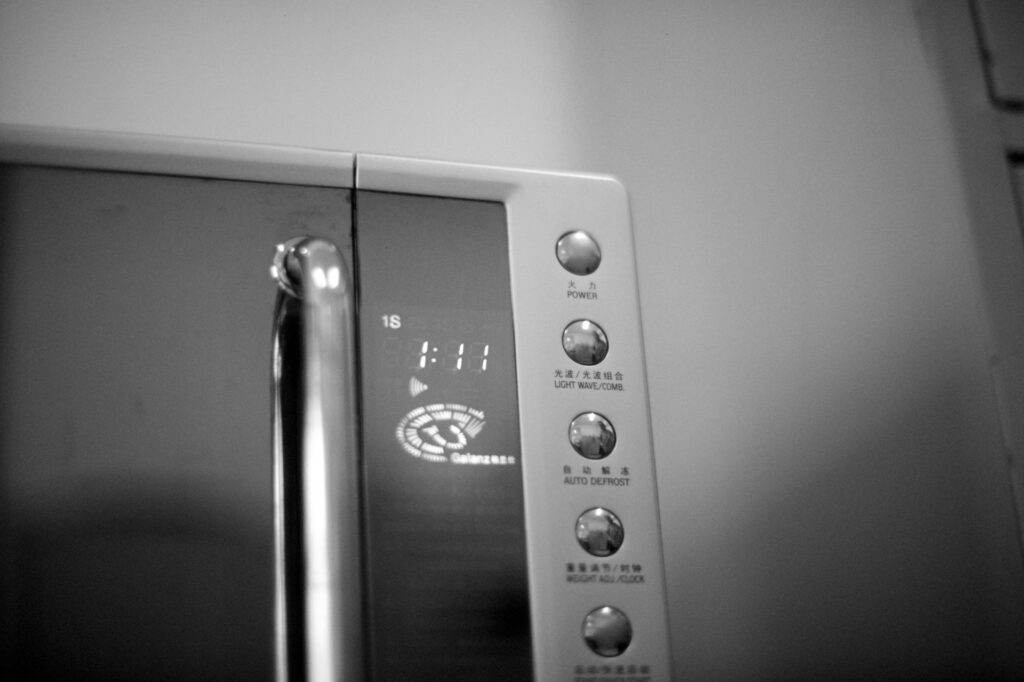Microwaves have been a kitchen essential for decades, but questions about their impact on health persist. The good news is that modern microwaves are generally safe when used properly. Here’s a deep dive into how they work, their effects on food, and how to minimize any potential risks.

1. How microwaves work
Microwave ovens use electromagnetic waves to heat food quickly and efficiently. These microwaves cause water molecules in the food to vibrate, generating heat that cooks the food. This method is more energy-efficient and often faster than traditional cooking, making it a go-to appliance for busy households.
Microwaves fall into the non-ionizing radiation category, meaning they don’t change the chemical structure of food as higher-energy ionizing radiation, such as X-rays, would. This is why microwaves are considered safe when used according to manufacturer guidelines.
2. Are microwaves dangerous?
As long as your microwave is in good working order, the risk to health is minimal. Microwaves are equipped with shielding that prevents the waves from escaping the appliance. Problems arise when the microwave is damaged, particularly the door or seal. If you notice any cracks or malfunctioning components, it’s essential to repair or replace the appliance to prevent radiation leaks.
It’s important to understand that microwaves don’t make your food radioactive. The waves used are similar to those in Wi-Fi routers and cell phones but at a much higher frequency designed specifically for cooking.
3. Effects on food and nutrients
A common misconception is that microwaving food destroys its nutrients. In reality, microwaving can preserve more nutrients than other cooking methods like boiling or baking. Because microwaves cook food faster, vitamins and minerals, particularly heat-sensitive ones like vitamin C and certain B vitamins, are better preserved. However, overcooking—whether by microwave or any other method—can reduce nutritional value.
To maximize the nutritional benefits of microwave cooking, avoid overcooking and use minimal water when steaming vegetables. This will help retain essential nutrients while ensuring even cooking.
4. Safe microwave use tips
To ensure your safety when using a microwave, follow these tips:
– Use microwave-safe containers: Not all plastics are designed for microwave use. Heat food only in containers labeled “microwave-safe” to avoid the risk of harmful chemicals leaching into your food. Glass and ceramic containers are the safest options.
– Avoid metal: Never put metal objects, foil, or metallic-trimmed dishes in the microwave, as they can spark and cause fires.
– Cover your food: Using a microwave-safe lid or cover helps food cook more evenly and prevents splatters. However, avoid sealing containers completely, as steam buildup could cause them to explode.
– Stir and rotate: Microwaves don’t always heat food evenly, so stirring or rotating the dish halfway through cooking can help distribute the heat more consistently.
5. Microwave myths debunked
There are several myths surrounding microwave use, and it’s time to debunk a few of them:
– Myth 1: Microwaves remove nutrients from food
As mentioned earlier, microwaves can actually preserve more nutrients than longer cooking methods. It’s all about avoiding overcooking and using the right techniques.
– Myth 2: Microwaves emit harmful radiation
Microwave ovens use non-ionizing radiation, which doesn’t change the molecular structure of your food. This type of radiation is fundamentally different from ionizing radiation, such as that used in X-rays or nuclear reactors, which is harmful in large doses.
– Myth 3: Microwaved food is unsafe to eat
Food cooked in a microwave is just as safe as food cooked in an oven or on a stovetop. As long as you follow safety guidelines, microwaving is a convenient and safe method of cooking.
6. Environmental impact of microwave use
In terms of energy use, microwaves are more efficient than traditional ovens because they heat food directly rather than heating the air around it. This means that they use less electricity and are more environmentally friendly when used appropriately.
However, the production and disposal of microwaves contribute to e-waste. To minimize environmental impact, always dispose of your old microwave responsibly through recycling programs or designated electronic waste disposal services.
Final thoughts
Microwaves have revolutionized how we prepare food, offering speed and convenience. Despite long-standing concerns, they are generally safe for everyday use, provided they are maintained in good condition and used with appropriate containers. Microwaving can also help preserve the nutritional content of food when done correctly, making it a valuable tool in any kitchen. By following safety guidelines and debunking myths, you can enjoy the benefits of this appliance without worry.

 Open Immovlan
Open Immovlan